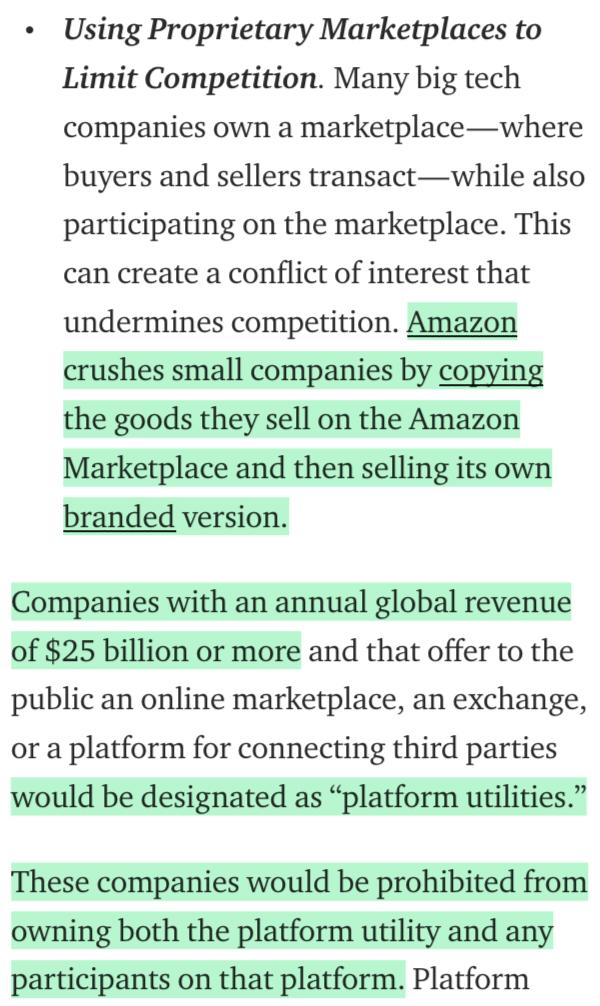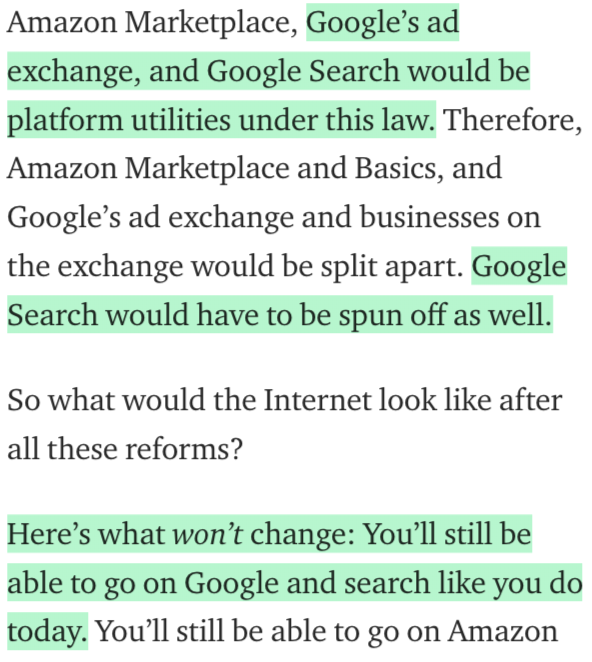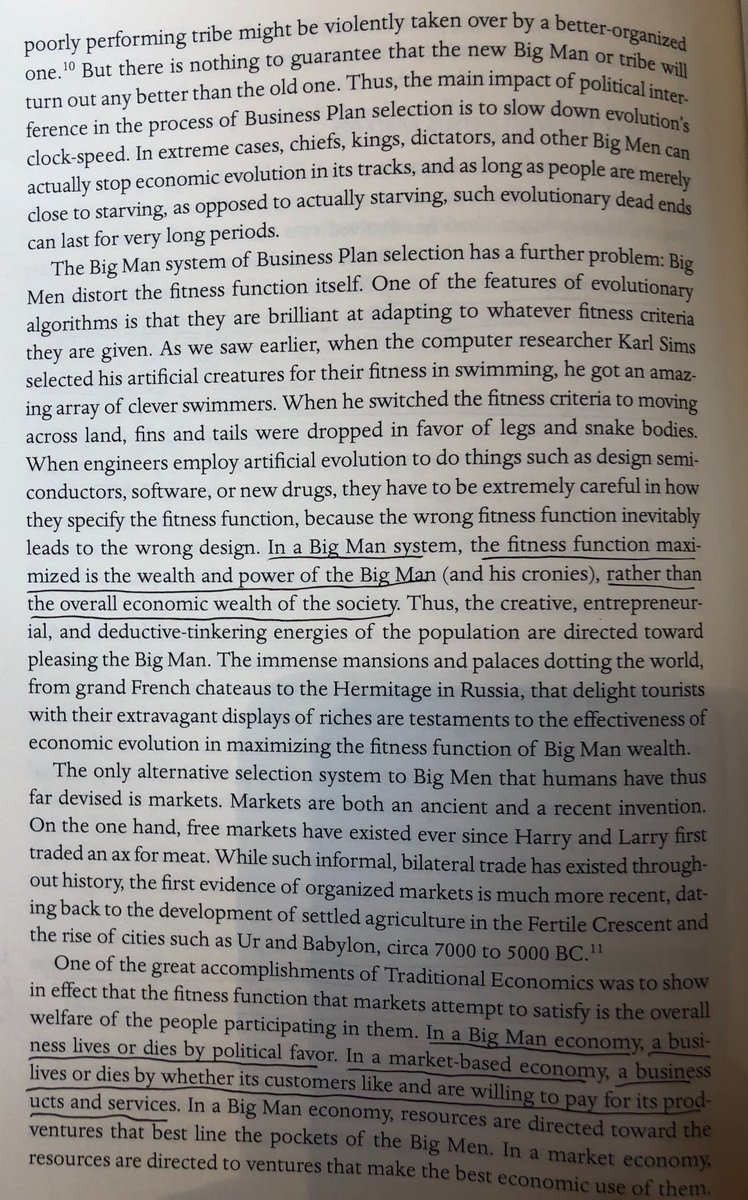
Founder/CEO @Stedi (healthcare clearinghouse) & previously Proforged (acquired by Huron Capital), serverless enthusiast, occasional blogger, all-around nerd.
3 subscribers
How to get URL link on X (Twitter) App


https://twitter.com/bowtiedbroke/status/1908131416698728850Amazon has a program that allows Chinese manufacturers to sell on Amazon and fulfill their orders from Amazon’s US warehouses. Amazon handles the importing end to end to make it as easy as possible for them to sell on the platform.


 I think about this in terms of preferences vs principles: many companies have a preference for operational excellence – but when push comes to shove, principles are defined by what you're willing to sacrifice for them.
I think about this in terms of preferences vs principles: many companies have a preference for operational excellence – but when push comes to shove, principles are defined by what you're willing to sacrifice for them. 
https://twitter.com/martin_casado/status/15091822329419079741. You cannot afford to offer your product otherwise. I don't mean "you could do it cheaper yourself" – I mean *your unit economics would be negative* if you used public cloud infra. This is the case in certain rare circumstances. (2/n)

https://twitter.com/stedi/status/1466511887747538952(2/n) Trillions and trillions of dollars flow through these legacy systems, locked away beyond the reach of modern developers. @Stedi is a collection of composable, API-driven building blocks that make these systems more legible and approachable: edi.stedi.com/inspector?valu…




https://twitter.com/dakanter/status/1405137369607684098A few thoughts on why the 4 criteria are important…

 Perhaps the hardest part of serverless development is building a team that is completely committed to it philosophically. Until that point, there are exhausting repetitive arguments about basic decisions; after, there are nuanced energizing debates about applied philosophy. 2/n
Perhaps the hardest part of serverless development is building a team that is completely committed to it philosophically. Until that point, there are exhausting repetitive arguments about basic decisions; after, there are nuanced energizing debates about applied philosophy. 2/n

https://twitter.com/martin_casado/status/1397989124682903554On i: saving 50% on COGS sounds great – until you realize that it means recruiting & retaining engineers instead of paying an AWS/GCP invoice. Opportunities to buy technical competence with a credit card are extremely rare; you can't buy core product competence per API call. 2/n



 Bloomberg journos find very representative examples of ‘Desperate Homeless Amazon Worker’ and ‘Good Paying Union Job Worker Who Vacations On Lake Havasu With His Boat And Was Definitely Not Introduced To Journos By Union Reps’ 2/n
Bloomberg journos find very representative examples of ‘Desperate Homeless Amazon Worker’ and ‘Good Paying Union Job Worker Who Vacations On Lake Havasu With His Boat And Was Definitely Not Introduced To Journos By Union Reps’ 2/n 



https://twitter.com/BleacherReport/status/1237914731106746373Hanks getting it shows normies that anyone can get it. Trump speech means MAGA crowd doesn’t have to hold the partisan ‘virus nothingburger’ line anymore. NBA suspension means it’s okay to cancel without looking like a nut.

 Google Search would have to be spun off from Ads but nothing will change w/your search experience. Nevermind that 87% of Google's revenue comes from ads; when you don't need to worry about realities of business, it's easy to imagine how companies will just magically make it work.
Google Search would have to be spun off from Ads but nothing will change w/your search experience. Nevermind that 87% of Google's revenue comes from ads; when you don't need to worry about realities of business, it's easy to imagine how companies will just magically make it work. 

 “Your creative power is entirely given by the power of these patterns...the only way of acting fast is to rely on the various rules of thumb which [you] have accumulated in [your] mind.”
“Your creative power is entirely given by the power of these patterns...the only way of acting fast is to rely on the various rules of thumb which [you] have accumulated in [your] mind.” 
https://twitter.com/mattyglesias/status/1081629613959405569I very strongly disagree, but it is much less maddening when you realize that there isn’t a misunderstanding of what the effects will be.

https://twitter.com/ajaynairthinks/status/10697973027248128012. No one wants to get fired. BigCo tech projects are always over budget, behind schedule, and under-performant - making it worse by going multi-cloud won’t get you fired. But if the ‘lock-in’ boogeyman shows up one day and it’s your fault, you’re fired.


